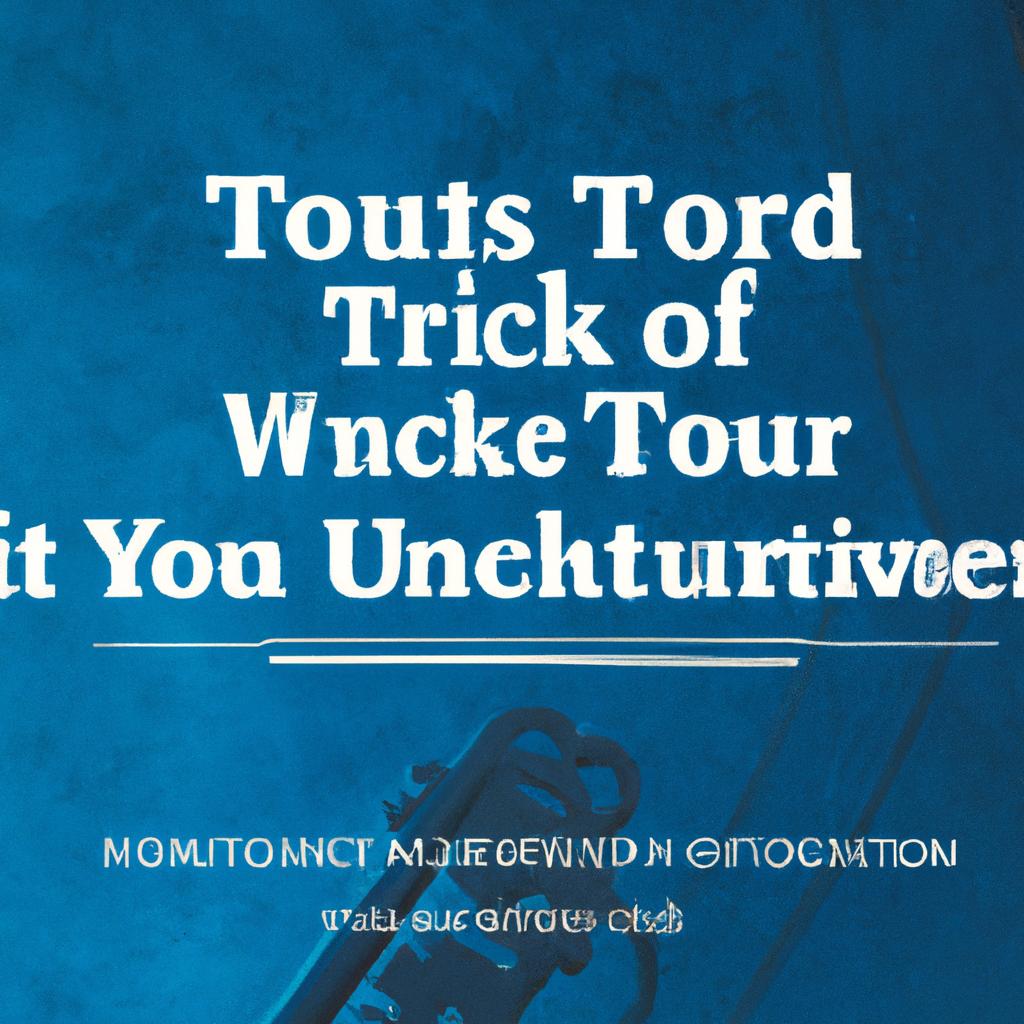In the realm of legal concepts, there is a fascinating and intricate notion known as the constructive trust. This elusive and adaptable instrument of equity has the ability to untangle complex ownership disputes, providing a sense of justice and fairness in the field of property law. But what exactly is a constructive trust, and how does it operate in the legal landscape? Let’s explore this intriguing concept to uncover its mysteries and assess its significance in today’s legal system.
Understanding Constructive Trusts: An Overview of the Legal Concept
Constructive trusts are a distinct legal concept designed to prevent unjust enrichment, particularly in cases where one party has acquired property or assets through deceit, fraud, or breach of trust. Unlike express trusts, which are explicitly created by the parties involved, constructive trusts are imposed by the court to remedy a situation where it would be unfair for one party to retain the property at the expense of another.
One key aspect of constructive trusts is that they are not based on the intentions of the parties but rather on the principles of equity and fairness. This means that even in the absence of a formal agreement or intention to create a trust, the court can still enforce a constructive trust to ensure that the rightful owner receives their due. It is a powerful legal tool used to correct injustices and ensure that individuals are not unduly deprived of their property or assets.
In essence, constructive trusts serve as a form of restitution, requiring the wrongful party to hold the property in trust for the rightful owner. This legal remedy acknowledges the importance of upholding trust and confidence in relationships, even in the absence of a formal agreement. By understanding the concept of constructive trusts, individuals can protect their rights and seek recourse in cases of unjust enrichment or breach of trust.
Key Characteristics of Constructive Trusts and Their Implications
Constructive trusts are a unique legal concept that can have significant implications in various situations. These trusts are not created by an express agreement between parties, but rather by a court order to prevent unjust enrichment or fraud. Understanding the key characteristics of constructive trusts is essential to navigating legal matters involving property disputes or breaches of fiduciary duty.
One key characteristic of constructive trusts is their equitable nature. Unlike express trusts, which are created through a formal agreement, constructive trusts arise to remedy wrongful conduct or unjust enrichment. This means that the court intervenes to impose a trust on property to ensure that the rightful owner is not deprived of their rights.
Another important characteristic of constructive trusts is their flexibility. These trusts can be imposed in a wide range of scenarios, including cases of fraud, breach of trust, or even mistaken gifts. The court has the discretion to determine when a constructive trust is appropriate based on the specific circumstances of each case.
Factors Considered in Establishing a Constructive Trust
Constructive trusts are a unique legal concept that can arise in various situations, typically involving property ownership disputes or breaches of fiduciary duty. When considering whether to establish a constructive trust, several factors are taken into account to determine the appropriateness of such a remedy.
One key factor is the intention of the parties involved. If there was a clear agreement or understanding between the parties regarding the ownership of property or assets, this could support a claim for a constructive trust. Additionally, the actions and conduct of the parties may also be taken into consideration. If one party has acted in a way that suggests they acknowledge the rights of the other party to the property, this could support the creation of a constructive trust.
Another factor that may be considered is the unjust enrichment of one party at the expense of another. If one party has unfairly benefited from the property or assets in question, a constructive trust may be imposed to rectify this imbalance. Additionally, the court will consider any detriment suffered by the party seeking the trust and whether it would be unconscionable to allow the other party to retain the property without compensating the rightful owner.
In summary, the establishment of a constructive trust involves a careful analysis of the intentions, actions, and conduct of the parties, as well as considerations of unjust enrichment and unconscionable behavior. These factors help the court determine whether a constructive trust is necessary to ensure fairness and equity in the resolution of property disputes or breaches of fiduciary duty.
Effective Strategies for Resolving Disputes Related to Constructive Trusts
When it comes to resolving disputes related to constructive trusts, there are several effective strategies that can be employed to reach a favorable outcome for all parties involved. One key approach is to carefully examine the evidence and documentation surrounding the trust to determine the intentions of the parties and the terms of the agreement. This can help clarify any misunderstandings or discrepancies that may have arisen.
Communication is also crucial in resolving disputes related to constructive trusts. Open and honest dialogue between all parties can help to address any concerns or grievances, and work towards finding a mutually beneficial solution. It is important to listen to all perspectives and work towards a compromise that meets the needs of everyone involved.
Mediation can be a useful tool in resolving disputes related to constructive trusts. A neutral third-party mediator can help facilitate productive discussions and guide the parties towards a resolution. By working together in a structured setting, the parties can address their differences in a constructive manner and explore potential solutions.
Key Takeaways
In conclusion, understanding the concept of a constructive trust is essential to navigating complex legal matters and protecting property rights. By shedding light on the underlying principles and applications of this legal concept, individuals can better advocate for their interests and seek justice in cases of unjust enrichment or breach of trust. As always, seeking professional legal advice is key to fully comprehending the nuances of constructive trusts and ensuring fair outcomes in legal disputes. Remember, knowledge is power when it comes to safeguarding your assets and upholding ethical standards in society.

The Basics of Constructive Trusts
Constructive trusts are a powerful legal concept that can be used to protect property rights and assets in various situations. Unlike express trusts, which are created intentionally by a settlor, constructive trusts are imposed by a court to remedy a situation where one party has unfairly benefited from another’s property.
How Constructive Trusts Work
Constructive trusts typically arise when there has been a breach of trust or a wrongful act that results in one party unfairly retaining property or assets that belong to another. In these cases, a court can impose a constructive trust to ensure that the rightful owner is able to reclaim their property or receive compensation for any losses suffered.
The Benefits of Constructive Trusts
- Protecting property rights
- Ensuring fairness and equity
- Preventing unjust enrichment
- Providing recourse for wrongful actions
Practical Tips for Leveraging Constructive Trusts
When dealing with constructive trusts, it’s important to keep the following tips in mind:
- Consult with a legal expert to understand your rights and options
- Gather evidence to support your claim for a constructive trust
- Be prepared for a potentially lengthy legal process
- Stay informed and involved in your case
Case Studies: How Constructive Trusts Have Been Used
Here are some real-life examples of how constructive trusts have been used to protect property rights and assets:
| Case | Description |
| Smith v Jones | Mr. Smith was found to have fraudulently acquired Mrs. Jones’s property. A constructive trust was imposed to ensure Mrs. Jones was able to reclaim her property. |
| Doe v Roe | In this case, a business partner was found to have misappropriated funds belonging to their joint venture. A constructive trust was imposed to ensure the rightful owner received compensation. |
Firsthand Experience
Many individuals who have been involved in constructive trust cases have emphasized the importance of seeking legal advice early on and being proactive in gathering evidence to support their claims. By staying informed and actively participating in the legal process, individuals can increase their chances of success in asserting their rights and protecting their assets.
Overall, constructive trusts can be a powerful tool in safeguarding property rights and assets. By understanding how they work and following practical tips for leveraging them effectively, individuals can ensure that their rights are protected and any wrongful actions are remedied.


